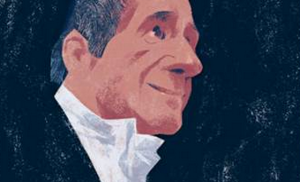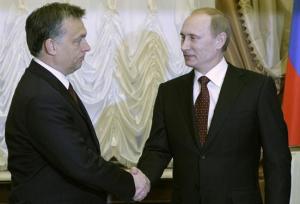Alex Ross of The New Yorker profiles conductor, composer, opera director and political gadfly, Iván Fischer. Fisher is a brilliant example of important Hungarian artists who continue to voice their dissent in the face of potential censure and loss of funding. Below are some excerpts. (Be sure to read the last one.)
“At a time when illustrious conductors have aligned themselves with powerful regimes—Valery Gergiev is a prominent supporter of Vladimir Putin, and Gustavo Dudamel has failed to distance himself from Nicolás Maduro, Venezuela’s President—Fischer is a vocal opponent of Fidesz… Fischer recently composed ‘The Red Heifer,’ a bitingly satirical opera on the subject of Hungarian anti-Semitism, which has seen a resurgence in recent years.”
“‘The Red Heifer’ addresses a shameful episode in Hungarian history—the Tiszaeszlár blood-libel affair of 1882, in which Jewish in a rural village were accused of murdering a girl in a religious frenzy. An extended trial ended with acquittal, but the case intensified anti-Semitism in Hungary and foreshadowed the Dreyfus affair. Fischer felt compelled to take on the material because in recent years right-wing extremists have attempted to reopen the Tiszaeszlár case: a memorial to the murdered girl has become a site of pilgrimage, and a member of Jobbik, Hungary’s far-right-wing [i.e., Fascist] party, claimed in 2012 that the acquittal of the Jewis of Tiszaeszlár had been a whitewash.”
“Not long after Fidesz won its supermajority, the government of Viktor Orbán…cut funding for the [Budapest Festival Orchestra]. Some thought that Fischer was being punished for his opinions.”
“I asked Fischer whether he ever felt that his politics could endanger his career or the existence of the orchestra. ‘For me, there is no dilemma,’ he said, staring fixedly into the camera on his computer. ‘If I censored myself, I could not look at myself in the mirror. If it ever reached a point where they said, “We will not support an orchestra which is the flagship of Hungarian culture around the world because their conductor made critical remarks,” then it would become such a level of dictatorship that I wouldn’t want to serve it anymore. So I will stay free, and they will decide how tolerant they are.'”


